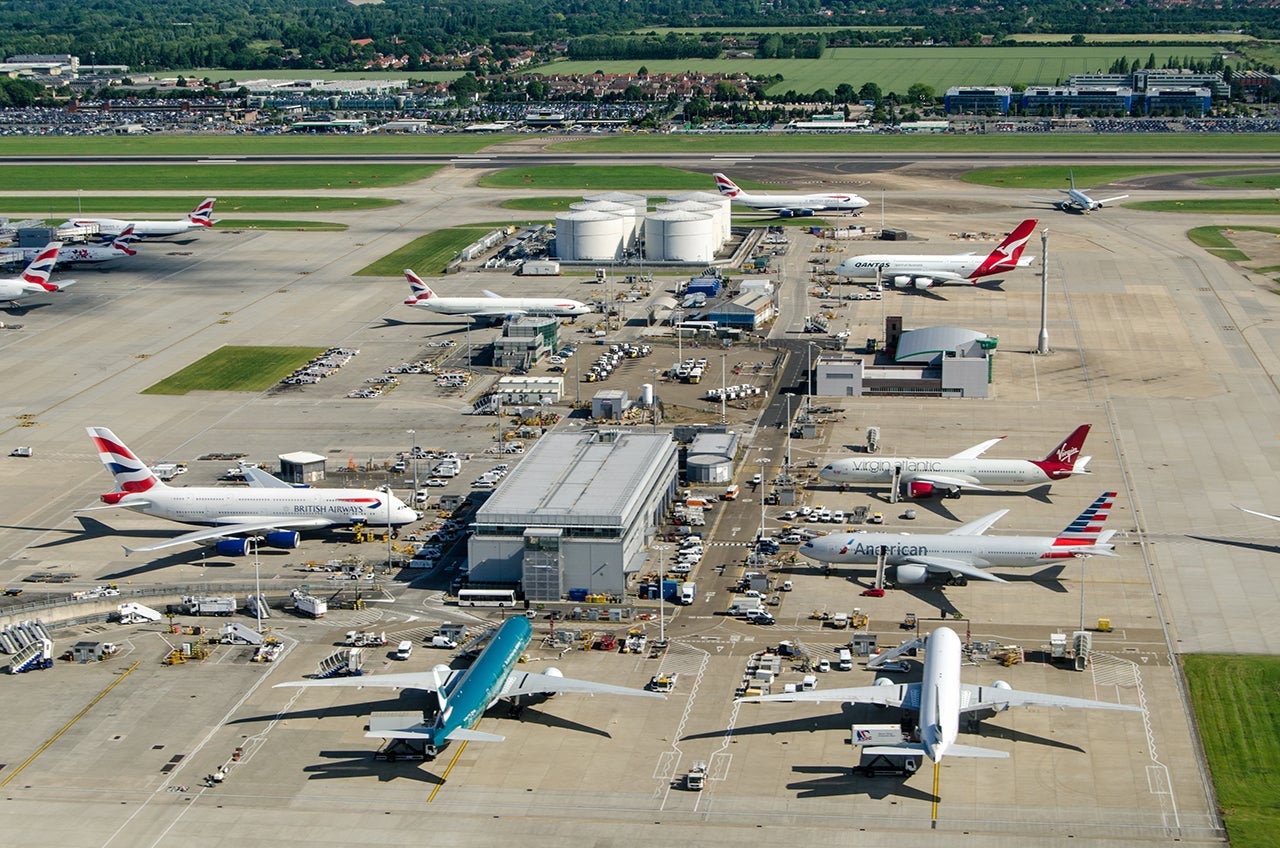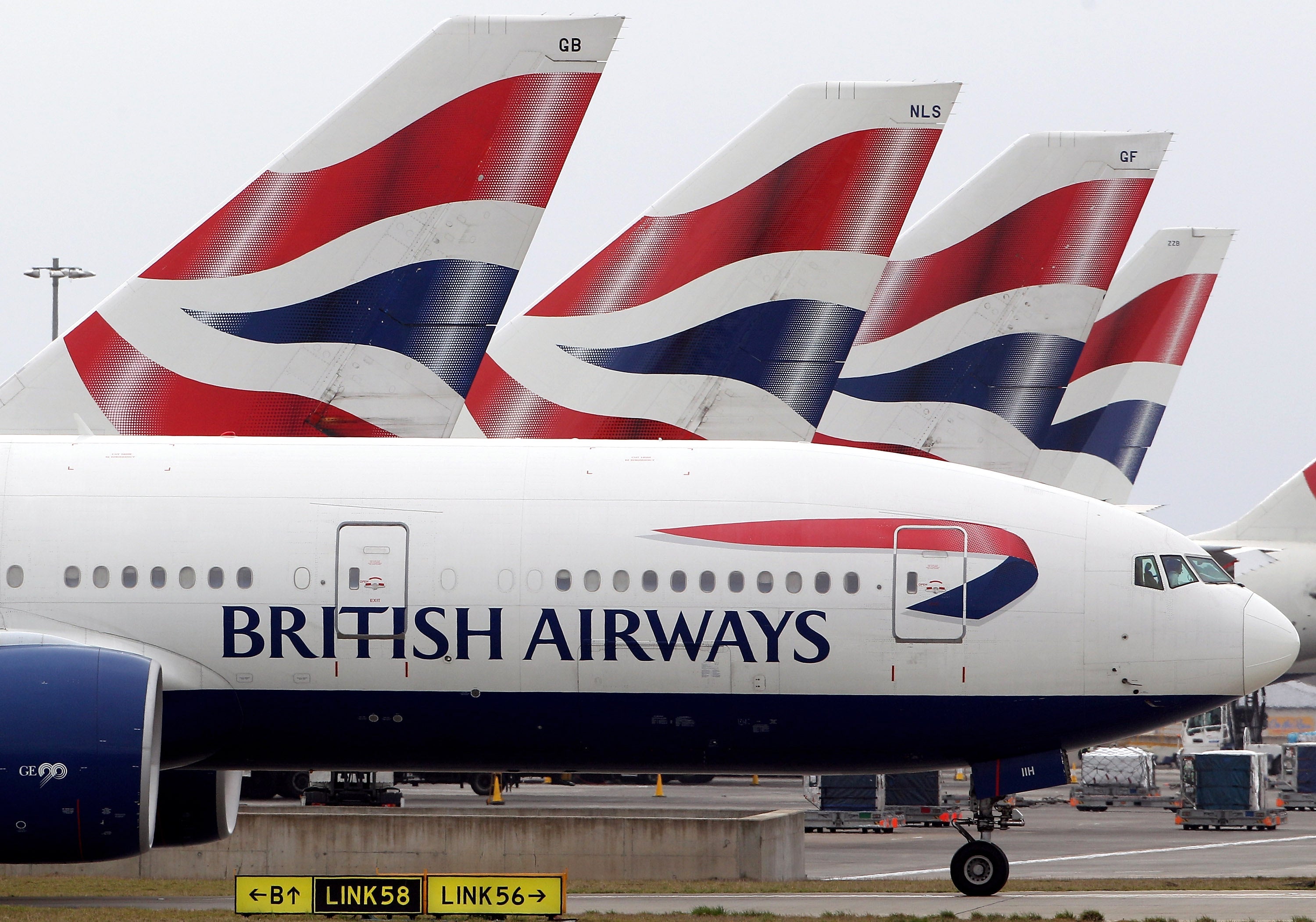Why London Heathrow Has Some of the Most Expensive Airport Slots on Earth
Imagine this. You're sitting on a plane at a congested airport hub when the pilot announces "We've missed our slot," which in turn leads to a delay until air traffic control is able to facilitate a departure outside of the original slot time. If you travel frequently, sure enough you've been there.
But why does it happen? Simply put, it's because commercial airline jets are unable to depart or arrive as and when they please. Instead, most airports — specifically hub airports — divide up 24 hours' worth of departures and arrivals into a grid of slots. If a slot is obtained by an airline, it's a guarantee that it may operate a flight on a certain day and time, at a certain frequency level (i.e daily, weekly), for as long as the airline owns the slot.
Each airport slot pair (one for departure, one for arrival) grants the airline full use of runways terminals, taxiways, gates and all other airport infrastructure necessary to.
There is some leniency in the strictness of 'sticking to your slot', however. For example, while an airline may have a slot for 14:05, there's a little breathing room for delays or early arrivals. That's because slots are less about controlling the punctuality of airlines at the airport, and more about ensuring they control the number of flights operating to or from the airport over the course of an entire day.
How Are Slots Determined?
Slot allocation in the UK is governed by the EU Airport Slot Regulation, which came into force in the early 1990s and still stands today. The most valuable airport slots in the UK — and, in fact, some of the most valuable in the world — are at London's Heathrow Airport (LHR). Heathrow is one of the busiest airports in the world, with global flight connections, terminals dedicated to major alliances and, of course, the main airport serving what many regard as one of the greatest cities in the world.
With Heathrow operating at almost 100% capacity, it's incredibly tough for any airline to attempt to obtain a slot. And without a slot, it's impossible to launch a flight to or from the airport.

Since the UK High Court ruled over a slot deal between British Airways and KLM in 1999, Heathrow slots are able to be resold on the secondary market. An airline purchasing one slot from another airline is, in theory, not a financial trade, but an exchange of one slot for another with a fee on the side. Airlines are also able to sell to 'outsiders' (an airline that has never operated to Heathrow before), but this tends to be on a lease basis, rather than an outright sale.
But is purchasing an airport slot a simple shopping experience for the airlines? Far from it. In fact, it's one of the most fiercely competitive, secretive and difficult purchases an airline will ever make. If successful in securing a slot, a standard evening slot-pair at Heathrow can often be one of the largest assets of an airlines' balance sheet.
How Much Are Slots Worth?
The value of each slot pair varies considerably by time of day. Around 10 years ago, an early morning slot pair (i.e., an arriving red-eye JFK-LHR flight, departing back to JFK a few hours later) was reported to be worth around £15 million. By midday, the value of slots would fall to around £10 million, and then drop again to £5 million in the evening. However, in a competitive European market, and with Heathrow more capacity-constrained than it's ever been, the price airlines will pay for slots is skyrocketing.

While it's kept mostly hush-hush, a leaked document revealed Oman Air set a record by paying £58 million for a pair of take-off and landing slots at Heathrow in early 2016. The Gulf carrier is understood to have bought the pair, which includes a highly prized early morning arrival, from Air France-KLM.
A year later, Scandinavian Airlines made news when it revealed that it sold two slot pairs at Heathrow for almost £60 million.
British Airways is the biggest holder of slots at Heathrow, with more than 50% of those available. The airline has been able to grow its slot portfolio mainly through secondary slot trading, which has ensured the airline remains Heathrow's most dominant player.

If the expansion of Heathrow Airport proceeds as planned, there is an expectation that the new runway will create 356 new daily slot pairs from expansion. The expected growth is good news for airlines wishing to operate to the London airport hub, such as JetBlue or easyJet.
'Use It or Lose It'
In order to guarantee the continuity of flights at one of the world's busiest airports, Heathrow and other UK airline operators adhere to a 'Use it or lose it' rule, whereby slots must be used immediately after purchase, or the airline will face having them revoked. For the airlines, this can make matters a little complex, as they are forced to fly anything in order to ensure they're able to cling on to those sought-after slots.
With the recent suspension of Jet Airways operations, its three Heathrow slots were thrown into the spotlight. The slots actually belonged to Etihad Airways (a former major investor in Jet Airways) and were leased to Jet Airways in 2013. With the future of the Indian carrier looking bleak, Etihad was forced to come up with a plan to protect its Heathrow slots as part of the 'use it or lose it' rule — or else it could lose one of its most valuable assets.
Etihad Airways announced that it'll take over those slots and will, in turn, boost its Heathrow operations by adding extra frequencies to Abu Dhabi. Etihad leased the remaining slots to its partner airline Air Serbia, which will double its presence at Heathrow.
For now, attempting to establish a flight to and from Heathrow remains a complex underworld of the industry with mammoth, yet unwritten price tags. Though with potential expansion at Heathrow, that could change.
TPG featured card
at Capital One's secure site
Terms & restrictions apply. See rates & fees.
| 5X miles | Earn 5X miles on hotels, vacation rentals and rental cars booked through Capital One Travel |
| 2X miles | Earn unlimited 2X miles on every purchase, every day |
Pros
- Stellar welcome offer of 75,000 miles after spending $4,000 on purchases in the first three months from account opening. Plus, a $250 Capital One Travel credit to use in your first cardholder year upon account opening.
- You'll earn 2 miles per dollar on every purchase, which means you won't have to worry about memorizing bonus categories
- Rewards are versatile and can be redeemed for a statement credit or transferred to Capital One’s transfer partners
Cons
- Highest bonus-earning categories only on travel booked via Capital One Travel
- LIMITED-TIME OFFER: Enjoy $250 to use on Capital One Travel in your first cardholder year, plus earn 75,000 bonus miles once you spend $4,000 on purchases within the first 3 months from account opening - that’s equal to $1,000 in travel
- Earn unlimited 2X miles on every purchase, every day
- Earn 5X miles on hotels, vacation rentals and rental cars booked through Capital One Travel
- Miles won't expire for the life of the account and there's no limit to how many you can earn
- Receive up to a $120 credit for Global Entry or TSA PreCheck®
- Use your miles to get reimbursed for any travel purchase—or redeem by booking a trip through Capital One Travel
- Enjoy a $50 experience credit and other premium benefits with every hotel and vacation rental booked from the Lifestyle Collection
- Transfer your miles to your choice of 15+ travel loyalty programs
- Top rated mobile app


